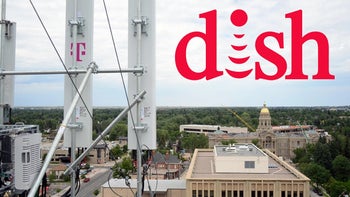DISH picks Samsung to be its 5G network expansion supplier

Samsung will be the main equipment supplier for DISH's 5G network expansion in the US, it announced with a press release, supplying "DISH Wireless with its 5G and RAN solutions, vRAN software and a variety of O-RAN compliant radio units, including Massive MIMO radios."
The DISH 5G network launched in Las Vegas last year as a beta testing ground, and is supposed to roll out commercially by June in 25 major markets in the US. DISH is uniquely positioned to build things from scratch without being bogged down in legacy hardware and software and after the demise of Huawei. Samsung is the one who will benefit as an equipment supplier, said John Swieringa, its president and chief operating officer:
Samsung’s 5G solutions will play an integral role in our network expansion, giving us the flexibility to deploy our cloud-native network with software-based solutions that support advanced services and operational scalability. We look forward to working with Samsung, whose industry leadership in vRAN and O-RAN innovation will help support our vision of delivering open, interoperable cloud-based 5G services to consumers and enterprises across the U.S.
After acquiring Sprint’s prepaid businesses and customers, DISH was given access to the network of the resulting new T-Mobile carrier for no less than seven years, in addition to the opportunity of building its own independent 5G broadband network. The network is still under construction, even though DISH has been clamoring for competitive advantages that would put it in more advantageous position against the big three.
The network chief of DISH, Marc Rouanne, has further plans for its newfangled 5G network that involves business customers as much as it will serve former Boost Mobile subscribers. During a keynote at the AWS’ re:Invent conference, reports Fierce Wireless, Mr Rouanne noted that DISH's 5G network cloud architecture provided by Amazon Web Services (AWS) will be uniquely positioned for the enterprise market, too, as it would allow for a "network of networks" that would communicate with each other.










Things that are NOT allowed: